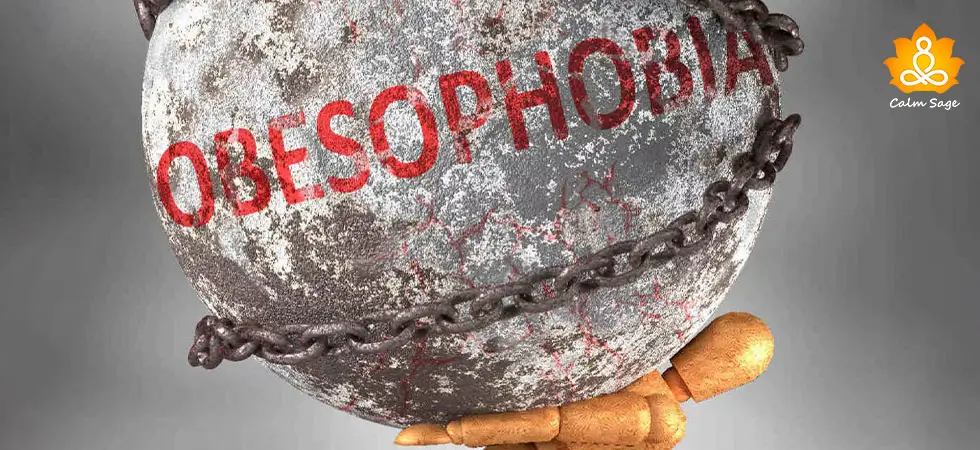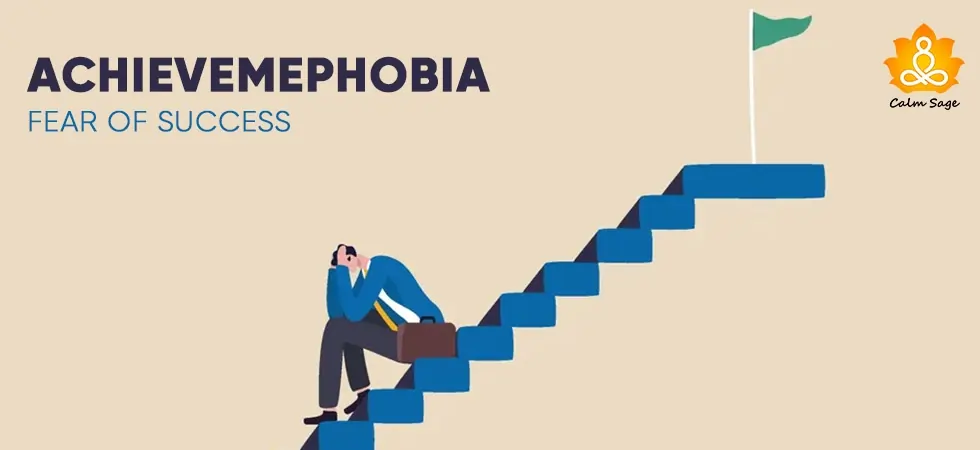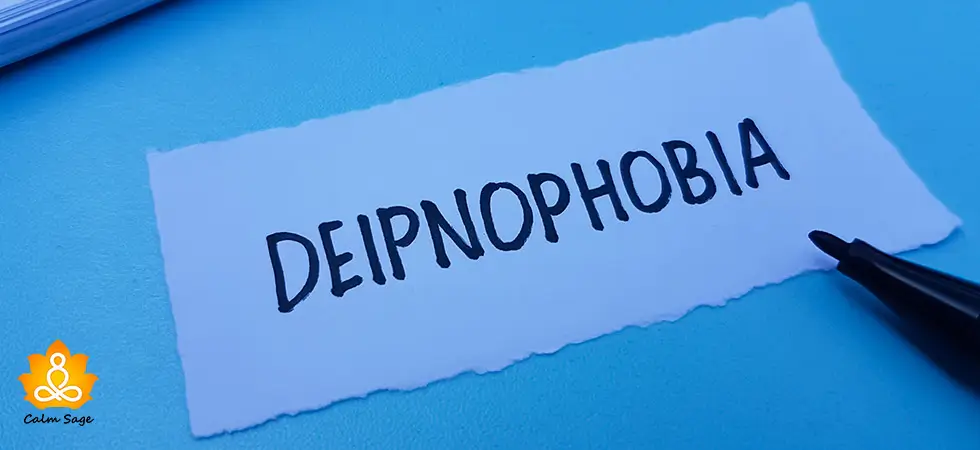Cibophobia: Understanding Food Phobia In Adults

A lot of people ask if food is an essential part of life, then how come someone can develop a fear of food? Well, yes, fear of food known as cibophobia exists and it’s a specific type of phobia that is listed under anxiety disorder. Now, in your mind you might be thinking of anorexia, let me clarify that being anorexic and cibophobic are two different terms with different meanings, symptoms, causes, and treatments.
In this blog, we will be taking a deep look at what cibophobia is, its symptoms, causes, diagnosis, treatment, self-help, and more. So, let’s get started!
What is Cibophobia?
Cibophobia is a fear of food which is a specific phobia related to anxiety disorder. Being cibophobic and anorexic (an eating disorder) are two different terms, and some people might get confused between the two, this is why cibophobia is one of the underdiagnosed or misdiagnosed conditions all around the world.
One of the major differences between cibophobia and anorexia is that people struggling with anorexia often struggle with body-image-related issues while people with cibophobia struggle with the phobia of food itself.
However, research shows that some people can experience both disorders (anorexia and cibophobia) at the same time.
Research shows that someone struggling with cibophobia might develop a fear related to one food or many foods. This fear can also result in fear of choking or illness related to that particular food or food. Generally, such fears are developed due to traumatic or unpleasant experiences.
Cibophobia is a life-disrupting phobia that can make a person anxious just by encountering the smell, vision, or touch of that particular food. An individual struggling with cibophobia may also engage in avoidant behaviors which means that people protect themselves from coming into contact with food related to the phobia. In order to avoid contact, they might also stop going to restaurants or grocery shopping.
During the episodes of cibophobia, an individual is aware that the food they have a fear of, will not cause them any harm, but still, they have this fear and they are unable to overcome the fear anyway.
Below-listed food items generally result in cibophobia:
- Perishable foods: Milk, mayonnaise, fresh fruits and vegetables
- Undercooked foods: Chicken, mutton, or fish
- Expired foods: Jams, sauces, gravies, or marinated stuff
- Leftovers: Rice, lentils, pizzas, or other prepared dishes
Below listed are some of the specific phobias related to foods:
- Food neophobia: Fear of new foods
- Emetophobia: Fear of vomiting
- Mageirocophobia: Fear of cooking food
Below listed are some of the common differences between anorexia and cibophobia:
| Anorexia Nervosa | Cibophobia |
|---|---|
| Anorexia is classified as an eating disorder. | Cibophobia is a specific type of phobia listed under anxiety disorders. |
| Can be caused due to fear of not losing weight or body image-related issues | Can be caused due to the fear of food itself. |
| An individual might be struggling with both conditions at the same time. | An individual might be struggling with both conditions at the same time. |
Symptoms of Cibophobia
People struggling with cibophobia develop a fear of food which results in unexplained anxiety, restlessness, muscle tension, constant worrying, fatigue, irritability, and lack of concentration. It’s quite challenging to identify cibophobia, especially when someone is avoiding a portion of food as a lifestyle choice or part of a diet plan.
Someone struggling with cibophobia develops an extreme fear related to that particular food that they will avoid seeing, touching, or eating the food at all costs.
In some extreme cases, this might also result in panic attacks. While panic attacks subside on their own, in some extreme cases, they can be life-threatening too and they might feel like losing control or dying. Below listed are some of the common symptoms of cibophobia:
- Anxiety
- Chest tightness or chest pain
- Constant worrying
- Dizziness
- Dry mouth
- Elevated blood pressure
- Hot flashes
- Fainting
- Fatigue
- Irritability
- Lack of concentration
- Muscle tension
- Nausea or vomiting
- Restlessness
- Shaking
- Shortness of breath or rapid heart rate
- Sweating
- Unknown feeling of danger
Causes of Cibophobia
As of now, the exact cause behind the development of cibophobia is unknown. However, psychologists believe that the causes of such specific phobias can be categorized into two parts, experiential-specific phobias and non-experiential-specific phobias.
Experiential-specific phobias are caused due to traumatic experiences. While non-experiential specific phobias are not related to traumatic experiences but alterations in brain chemistry or genetics. Moreover, a fear of food might also be developed due to discomfort related to texture, aroma, and expired, or undercooked foods.
Some of the common foods that might result in the development of cibophobia can be:
- Cottage cheese
- Broccoli
- Pickles
Research shows that a simple dislike of food and the presence of untreated mental health conditions might develop cibophobia over time which eventually starts disrupting overall quality of life.
Below listed are some of the common causes resulting in cibophobia:
- Biological factors
- Informational learning
- Observational learning experiences
- Past traumatic experiences
Complications Related to Cibophobia
Studies show that specific phobias such as cibophobia worsen over time. someone struggling with cibophobia might not be able to maintain relationships, maintain productivity, show up to work, go to restaurants, or for grocery shopping. In such phobias, avoidant behaviors keep on increasing.
Over time, people also start developing fear related to other types of food and this eventually results in restricted diets, disrupted quality of life, and jeopardized physical and mental wellbeing. Such unknown or underdiagnosed issues might result in complications such as:
- Chronic loneliness
- Depression
- Anxiety
Diagnosis of Cibophobia
Cibophobia is not an eating disorder such as bulimia, anorexia, or orthorexia. Some people might get confused with the two because they have some similar symptoms such as anxiety and avoidant behaviors.
According to the Diagnostic and Statistical Manual of Mental Disorders 5th Edition Updated Version (DSM-5-TR), below-listed is the following criteria for the diagnosis of specific phobias such as cibophobia:
- The fear or specific phobia must be out of proportion and can result in any real danger.
- The fear or specific phobia must be causing significant stress and disruption to one’s overall quality of life.
- The fear or specific phobia must have psychological effects and the symptoms must last for more than six months.
If you think you or your loved one might be struggling with cibophobia, connect with an experienced and registered mental health professional to get a proper diagnosis and treatment.
To connect with a mental health professional through online platforms, click below:

Great for a large network of licensed therapists
-
$60 to $90/week, billed every 4 weeks
-
Therapy via messaging, phone, or live video chat
-
Flexible cancellation at any time
20% off your first month

Great for CBT Based therapists
-
$40/week, billed every 4 weeks
-
Therapy via messaging, phone, or live video chat
-
Specialization for CBT based Therapy
20% off your first month

Best for Treatment Plants
-
$60 to $90/week, billed every 4 weeks
-
Therapy via messaging, phone, or live video chat
-
Flexible cancellation at any time
$100 off your first month with code SPACE
Treatment of Cibophobia
After getting a proper diagnosis, it’s important to seek the right treatment plan as well through a qualified and experienced mental health professional. The first-line treatment options for cibophobia are medication and psychotherapy.
1. Medications
Medications are generally prescribed to treat or reduce some specific symptoms such as anxiety, depression, or negative thinking related to the feared food. Below listed are some of the common medications prescribed while treating cibophobia:
- Antidepressants
- Beta-blockers
- Benzodiazepines
2. Psychotherapy
According to psychotherapists, there can be different therapy options for treating cibophobia such as:
- Cognitive Behavioral Therapy (CBT): CBT helps in understanding problematic behaviors and changing them positively by teaching different positive coping skills.
- Systemic Desensitization: Systemic desensitization is one of the effective psychotherapy options for different types of phobias including cibophobia. It is similar to exposure therapy as it also teaches some effective relaxation techniques to adapt while slowly exposing yourself to the cause or feared food item. Additionally, systemic desensitization also uses virtual reality which helps in overcoming the phobia.
- Hypnotherapy: Hypnotherapy is also an effective option for treating cibophobia because it helps in understanding subconscious thoughts and beliefs related to the fear.
- Virtual reality exposure therapy: Virtual reality exposure therapy is a newly developed therapy option that gradually exposes the client to the source of fear through a virtual headset.
- Acceptance and commitment therapy (ACT): ACT helps in cultivating acceptance of negative thoughts and beliefs related to food. Additionally, it also helps in identifying personal values and setting meaningful and achievable goals to overcome the symptoms of cibophobia.
Coping Strategies to Overcome Cibophobia
Along with psychotherapy and medications, you can also make some lifestyle changes that can help you overcome cibophobia, related symptoms, and triggers. Here’s how you can cope with cibophobia:
- Develop a regular meditation practice.
- Practice stress relief and relaxation techniques.
- Learn different breathing exercises to address symptoms like depression, anxiety, and anger effectively and instantly.
- Promote mindful breathing to stay in control and conscious of your actions.
- Focus more on fulfilling your basic needs such as physical exercise, getting sleep, and eating well to promote mindful, healthy, and positive living.
- Seek the support of your loved ones to feel supported, loved, and positive.
- Attend support groups for addressing unknown mental health conditions.
Wrapping Up
Understanding and recognizing cibophobia can be challenging because people often relate this specific phobia with the symptoms of anorexia nervosa. However, with the help of an experienced and certified mental health professional, you or your loved one can effectively work on understanding your symptoms and getting the right help for them.
Moreover, if a certain food is keeping you away from receiving proper nutrition, you can always connect with a Clinical Nutritionist or Healthcare professional.
I hope this blog helps you understand cibophobia and the difference between cibophobia and anorexia. Comment down and share your views on the same. For more such content, connect with us through all social media platforms.
Thanks for reading!




















